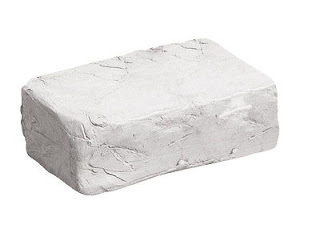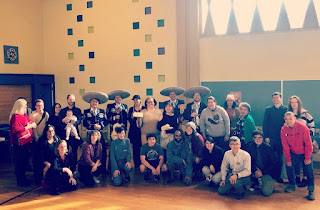Will Friendship Kitchen be … Our Next Success Story?
~ Ha Na Park
Ten years have passed, but I can still vividly picture my family venturing into Save-on-Foods to shop for supper. We were like many other newcomer families in Vancouver: Min-Goo pushing toddler Peace in his stroller, and me quickly searching through the food sections, mostly looking for any familiar items from my home country, Korea, especially vegetables. Many Korean dishes - side or main - are based on a great variety of Korean native greens. I knew that without them, the menus I could create for my family’s supper would be limited. I remember how often I sighed in grocery stores, thinking, “I can’t make Korean cuisine with just spinach, bell peppers, broccoli, squash, and cucumbers. I wish I could take a cooking class. What do Canadians make with these vegetables?”
Now, I recollect when I went out for lunch with my theological schoolmates, in my first year in Canada. We all sat down in a family restaurant. I was given a menu, and was immediately confused. I asked, “Can you guys recommend what to eat? And tell me, what are Canadian foods?”
They looked at each other and began to laugh, “Canadian food! Gosh, do we have ‘Canadian food’?
“I love Thai food.” One person chimed in. “It’s hard to say what is Canadian food, because what Canadians eat is Canadian food.”
Now, 10 years have passed. I certainly have become a better cook. I developed a great deal of skill in how to cook and finding the best places to shop. If there’s something I want to eat, no matter if it is ‘Canadian’ or ‘Foreign’, I can find recipes quickly and try one and it’s a hit! However, it took 10 years to develop these skills; I still daydream about taking a cooking class to learn how to make basic healthy salads or a school lunch that’s easy to prepare and nutritious. What’s the right way to cook quinoa? What are healthier options than just a ham and cheese sandwich for kids every day?
The United Church in Meadowood is launching Friendship Kitchen: cooking classes for newcomers. It is starting up soon: every Tuesday from May 16 – June 20. It is a free program offered to any newcomers regardless of their religion, tradition and cultural backgrounds. I started research and planning last September. A strong partner was found: Food Matters Manitoba (www.foodmattersmanitoba.ca). A brand new small-group Friendship Circle was created to work on a long-term project on behalf of UCiM to engage newcomers in our St Vital community with relevant programs; Friendship Kitchen will be our first program.
Since Friendship Kitchen is designed as an intercultural ministry enterprise, Embracing the Spirit: Innovative Ministry Fund of United Church of Canada awarded us a grant of three thousand dollars as the start-up fund. On March 22nd, I posted the poster on our church’s Facebook page, and BOOM – something magic happened. The responses from the newcomers’ community and local community organizations were explosively positive. Within 23 hours of the first post, TWENTY individuals and local community organizations such as Morrow Avenue Child Care shared our Friendship Kitchen post widely, and 2500 people were reached - in less than a single day! The next morning, when I contacted Healthy Start for Mom and Me for promotion, the staff told me, “We were already talking about your program!”
Since then, we have steadily received registration requests from newcomers. All the applicants have told us that they are so excited about our program and how much they’re looking forward to participating. One person who came from Ethiopia last year told me, on the phone, that her English class teacher recommended this program, and she’s very excited. Note: I have really never contacted any English class for promotion. Next week, I’m going to meet a dietitian from Youville Center to discuss both the possibility of promotion and a community development plan.
What does this story tell us? First of all, it proves the power of communication through social media. Social media is a great medium of reaching out to the community around us if our programs meet the priority needs of the community. More importantly, I believe it also tells us our program has potential to foster intercultural relationships and even membership growth. It may be a slow process, but I believe it is a ministry worth investing in. We’ve just opened a door. We’ve just opened a box. We cannot make prejudgment on or limit what results, what gifts, what future experimental, innovative, intercultural ministry can bring us and help us to see!
I hope you are excited about Friendship Kitchen. The community around us is excited and enthusiastic about it. Own this ministry, and expand it. I hope this can be UCiM’s next success story!
Friendship Kitchen cooking classes for newcomers will be more than just an outreach or social service for the benefit of newcomers. (Note: newcomers are diverse. There are middle-income and low-income newcomers. Some drive their own vehicles. Others take buses. Some have a big family. Some are LGBTQ members, too. Some emigrated from a stable country; others went through very hard traumas.) Our program aims to build a community within the community. Our volunteer line-up looks very strong: it is a wonderful mix of newcomers and non-newcomers, and the joint work of our own church members and members from the outer communities. All our volunteers will help the participants and each other to feel welcome, safe, and respected within a community that supports their new journey in Canada. Countering social isolation through friendship is our goal.
JOIN US FOR…
Nutrition education: eating healthy in Canada
Cooking nutritious food
Meeting new friends through cooking and eating together
Volunteer opportunity
Bus tickets and childminding will be available.
If you are interested, please don’t hesitate to call the UCiM Church office 204.256.7002.
Blessings,
Ha Na





%5EJ%202023.jpg)
